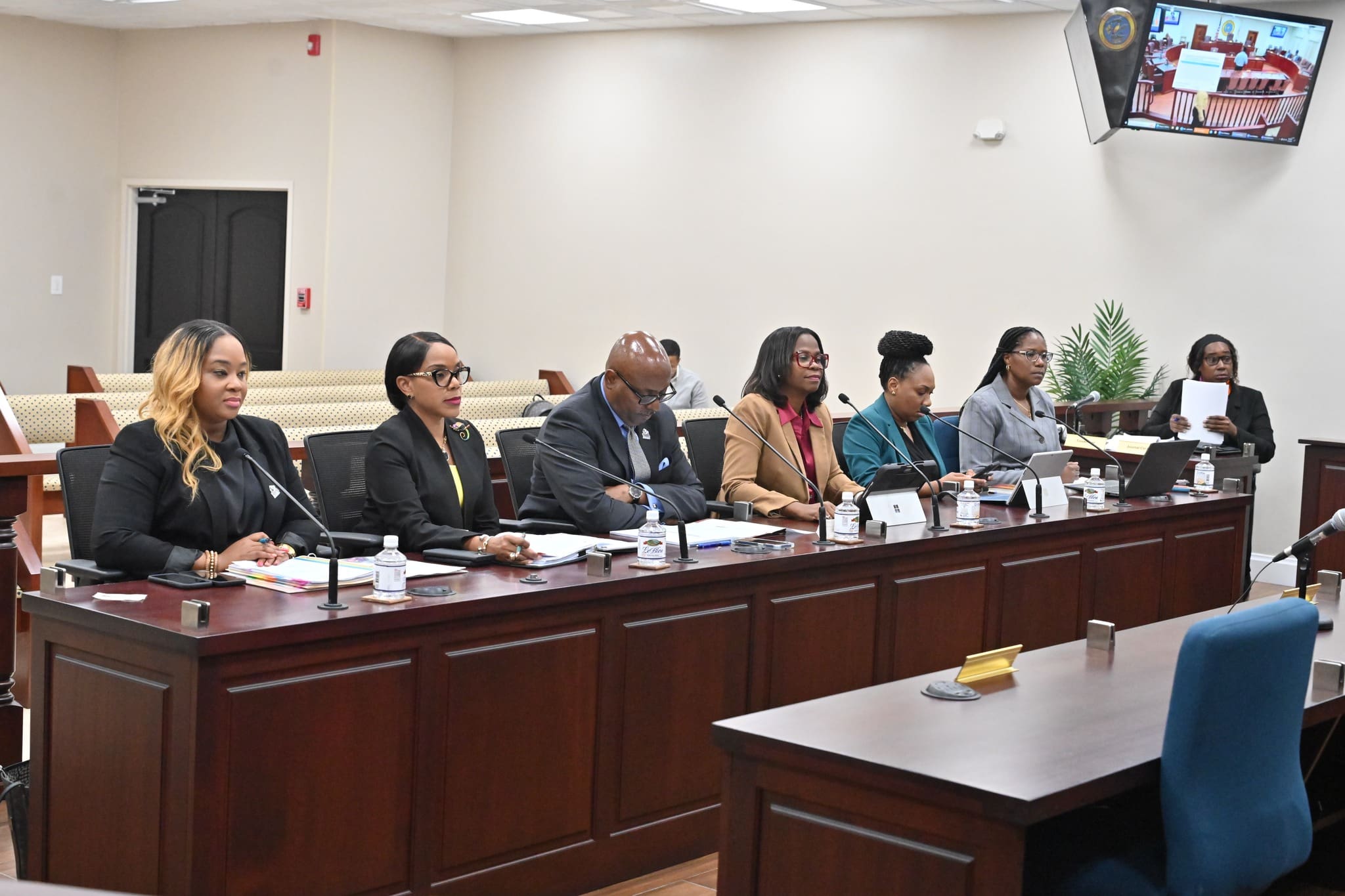
Could the federal government cut funding for a half-built hospital? This concern was raised at Thursday’s Committee on Disaster Recovery, Infrastructure, and Planning hearing, as recent executive orders from President Donald Trump seek to slash federal spending. The Federal Emergency Management Agency (FEMA) is currently obligated to spend over $23 billion on disaster relief in the territory.
Adrienne Williams-Octalien, director of the Office of Disaster Recovery, told senators her biggest concern is that the territory would not show enough progress in projects that include rebuilding schools, hospitals, and utility infrastructure, and funding would be deobligated. Another concern Williams-Octalien had about Trump’s executive orders was the cutting of staff at federal agencies. She said that federal agencies often took a long time to approve payments because those agencies did not have enough staff to process the approvals quickly.
The Virgin Islands government has already felt some effect from Trump’s actions. When he froze all spending, the territory could not draw down promised funds.
Sen. Marvin Blyden said he was “very alarmed” when he read published reports that the Housing and Urban Development Department Secretary Scott Turner would lay off 50 percent of the agency’s employees.
Hospital projects in the territory have already suffered delays. Solicitations for proposals for the reconstruction of Juan F. Luis Hospital on St. Croix went out twice in 2024. The first effort only received one bid, while the second solicitation received no bids. Revisions to the solicitation package are in progress, and the recommendations from a market study are being incorporated to garner interest. It is scheduled for release by the end of March. The solicitation of the Roy L. Schneider Hospital is scheduled for April, and Herbert Grigg for the Aged will follow in June.
Williams-Octalien mentioned other challenges in completing critical projects, including a lack of workforce, rising costs, and supply chain constraints.
“And if this is not enough, the risk of de-obligation of recovery dollars due to the federal administration shift in policy undermines the confidence of stakeholders that funding will remain available to carry out recovery efforts,” she added.
“St. Croix really needs a hospital,” Sen. Clifford Joseph said.
“The ball game has changed” since Trump was elected, and Virgin Islands officials need to “push extremely hard to get things done,” Sen. Kurt Vialet said.
Williams-Octalien said the territory was only able to spend about $500 million a year of disaster relief funds since the funds started arriving after the 2017 hurricanes. She said to spend the obligated $24 billion by the 2035 deadline, the territory needed to spend $2 billion each year.
“In February 2024, the Biden-Harris Administration granted a reduction in the local match requirement from 10 percent to as low as two percent, which made the monumental task of executing these projects more attainable,” she said. She added that though the territory had $250 million set aside to pay its share, more local money had to be found.
Sen. Carla Joseph asked whether Williams-Octalien had any communication from the federal government saying some funds would be “deobligated.” She answered no to that question and Joseph’s follow-up question about whether a delayed audit was putting funds in “jeopardy.”
Eugene Jones Jr., executive director of the Housing Finance Authority, also testified at the hearing.
Jones testified that the authority had spent $315 million of the $1.1 billion in a disaster relief community block grant allocated to it. This includes reimbursement to the Office of Disaster Recovery totaling $542,000 for 19 EnVision homeowner applicants for mobilization costs.
Vialet questioned why HFA let that program go to ODR when housing was HFA’s mission.
Jones added that the authority has spent $34 million from a mitigation grant for three properties: Lovenlund 1, Bellevue Village, and Calabash Boom Apartments. These properties are intended to be converted into homeownership opportunities for qualified residents.
Sens. Hubert Frederick, Clifford Joseph, Avery Lewis, Marvin Blyden, Angel Bolques, Dwayne DeGraff, Novelle Francis, Marise James, and Carla Joseph attended the hearing.





